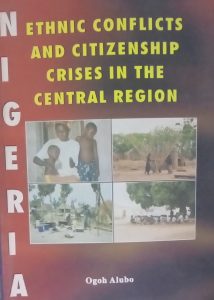Neoliberalism as a technology of power rather than only a doctrine of what incisive British Marxist Geographer, David Harvey, calls “creative destruction” and “accumulation by dispossession” is not what every political economist understands. But that is one of the most detailed critiques of the class analysis of the state. Rather than assert that the state is an instrument of class rule, neoliberalism asserts that the state is a space of actions, the most fundamental of which is the Foucauldian notion of “calculated management of life” with a view to making the population fit for capitalism. Neoliberalism emerges in this context as the framework for fabricating the population in the image of capitalist state through knowledge, (political economy) and security practices. It is this formulation that entangles every serious student of neoliberalism in the knowledge of security: the various practices by which the typical state disciplines and controls the population. Nowadays, this process has moved from the antiquated panoptic practice of yesteryears to a surveillance form whereby digital capitalism has every detail of the body of the citizen – finger prints, facial recognition, voice recognition, passports and all manners of biometric capture which Professor Giorgio Agamben, the Italian Philosopher at King’s College London, rejected in his famous 2004 newspaper protest essay, “No to Biopolitical tattooing” in the wake of the global war on terror, (GWOT).

Prof Alubo, the author of the book under review and a Professor of Sociology at the University of Jos in central Nigeria
Not many people have the stature of a Prof Agamben to stage an impactful protestation of the unfolding of the shift claimed to have occurred particularly in modern Europe and in which territory as a definer of the state gave way to population as its replacement. With population as the definer came the imperative of discipline and control of the modern population by making the human body legible to power in terms of seemingly pastoral practices of headcount, health and similar detailed statistics. That is biopolitics. Thus even as exploitative and oppressive as the colonial state, it was never slack in conducting inoculation, headcount and similar exercises aimed at thwarting possible biopolitical breakdown. It is similarly the reason the American State, for example, entertains no qualms in going to arrest a foreign leader on charges of drug dealing as a crime, crime being an attack on biopolitical order. Such practices have become regular in what Agamben also calls ‘the state of exception’ where the rule of law is temporarily suspended as in Guantanamo Bay. They are all explainable by an assemblage of thoughts, practices, models, rationalities, techniques constituting Governmentality – the theory and practices by which neoliberalism is operationalized as the framework of biopolitics.
It is in the sense of the above presentation of biopolitics that Nigeria’s Prof Ogoh Alubo scores a bull’s eye in critical security studies/Sociology of Health with his new book whose cover page is also the cover picture of this quick review. He brings a biopolitical lens to the theme, providing the context in which health is not necessarily about lack of wellness but about power relations and what power does as far as who dies of malaria or survives cancer is concerned. What this book has done is to demonstrate this overarching framework in the various spaces of dysfunctional neoliberalism in Nigeria’s healthcare system. This comes in 22 easy-to-read chapters, beginning with a theoretical conversation that opens into such chapters as “Federalism and the Health System in Nigeria”, (Chapt 4); “Power and Privileges in Access to Health”, (Chapt 6); “Reasons for Poor Access”, (Chapt 7); “Power, Gender and Women’s Health in Nigeria”, (Chapt 8); “The Politics of Population and Reproductive Health and Rights in Nigeria”, (Chapt 9); “AIDS Policy and Politics in Nigeria”, (Chapt 10); “The Nature and Challenges of Private Medical Enterprise” which takes chapters 14 to 16, including the section that deals with key sub-sets such as laboratory services, blood banks, Pharmacy, food and catering, drugs quality, exclusion, clientele, pills, drug poisoning and death, amongst others.

Prof Alubo in a 2005 book
A different reviewer may pick a different sample of chapters but whichever samples one picks does not detract from the vastness of the coverage, the detailed data and the illuminating end game. One immediate temptation after encountering Alubo is to conclude that the disaster in healthcare in Nigeria is traceable, first and foremost to the ignorance of the biopolitical ethos among the operatives of the system. Otherwise, why is the capitalist state in many Asian, Middle Eastern, European and North America countries able to deliver on functional healthcare? It must be the technical competence of the domestic ruling classes involved to appreciate the biopolitical imperative for the survival of capitalism and accumulation.
The demand of book reviewing to elaborate on the context of production of the text compels us to turn to what Alubo serves us in this regard. Here and again, it is a stimulating outing in tracing it to the teachers and environment of the old Faculty of Arts and Social Sciences at Ahmadu Bello University, Zaria where he first encountered the Sociology of Health before moving to the University of Missouri in the United States. There, the training became more complicated arising from situating Sociology of Health in the social structure, an analytical process which brought in the leading voices against exclusion. One such voice was Fanon’s The Wretched of the Earth. The other was Che. Subsequently, a wider set of texts came from political economists like Eskor Toyo, Bade Onimode, Yusuf Bangura and Historians such as Gloria Emeagwali and Alkassum Abba. These were the sources of the author’s firmer conviction that the “social structure rather than individual’s social psychological orientations, holds the key to understanding the nature of health, sickness and responses”, (p. xvii). The message of the context is that we are not reading a text that emerged from narrow, technicist narrative of an isolated discipline or expert. Nor are we reading indigestible amalgamation of data justified on crude multi-disciplinarity. What is on offer is an analytical framework that is faithful to its canons, even daring to attempt fusing materialist interpretation with postmodernist cant here and there.

A powerful but unseen force in global health governance
Beyond its shattering critique of the Nigerian State in its poverty of biopolitics, this book breaks another ground in what it offers students of Global Governance. This relatively new sub-discipline in International Relations studies the governance logics in domains in world politics which no single nation state, no matter how powerful, can handle singlehandedly. Some of these are global health, climate change, terrorism, migration, energy and global finance. They are collectively studied as ‘new security challenges’. Much of them take place in the global South where most pandemics, for instance, break out, (Ebola for example) or have the most devastating outcomes. The paradox here is that the knowledge system which analyses and prescribes the governance arrangement is dominated by the global North. Since all knowledge systems carry a power agenda, these texts from the global North have implications for hemispheric power relations, most often times reinforcing hegemony and domination even when the authors are radical and did not set out to support hegemony. In offering an authoritative analysis of the crisis of healthcare in Nigeria, a key state from the global South, Alubo, consciously or otherwise, enters a counter-hegemonic narrativisation of global governmentality in the health arena. Teachers of Global Health Governance will find his text of immense utility.
Intervention sees in the book as a confirmation of one of its recent contentions. It had said in a recent critique that “Even scholars such as Prof Adigun Agbaje, Eghosa Osaghae, Jibrin Ibrahim, Okey Ibeanu or Sam Egwu in the case of Political Science might not be appropriate subjects of Festschrift yet as no one may know what theoretical or conceptual explosion they might still be scrutinizing within their scholarly gaze”. Prof Alubo’s book has proved this assertion correct within two months of its posting, he being a front rank member of that generation and in terms of standing in scholarship although the names here are those of some Nigerian political scientists.
It is a matter of regret across the world that Nigeria is still where certain things cannot be taken for granted. One of such is basic health. It is only those who experience malaria or typhoid fever who can appreciate what the peasants and urban poor go through as aptly captured in Alubo’s rider: why the poor face avoidable deaths”.
Against this background, it should be a good omen that Dr. Iyorchia Ayu, the National Chairman of the People’s Democratic Party, (PDP) will be serving as the Chairman of the public presentation of the book on March 18th, 2022. The expectation is that Ayu would invite his counterpart from the All Progressive Congress, (APC) to the occasion so that thereafter, the twosome would compel their ministers, governors, legislators, board chairmen and local government chairmen to a compulsory joint training session on this book. The logic is that it is time this country should take basic health care for granted. And the way to go about it is to use what Alubo has put on the table to move in that direction.




























